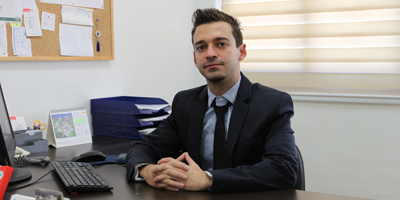Contribution to international research from EUL

In collaboration with 14 international partners, EUL, which was invited to the research project led by Prof. Rodrigo Lozano, also contributed to the research. In the research, the current situation on how sustainability concept, which is included and accepted by many higher education institutions in master’s and undergraduate programs in the world, is provided and supported in course content and the elements that still need to be learned were examined.
The book, which compiles the results of the universities’ “Developing Sustainability Competences Through Pedagogical Approaches” (Research on Developing Sustainability Competencies in Higher Education Institutions) project, which is contributed by various universities from 4 continents (Africa, America, Australia and Europe) and 12 countries, was published by Springer which is known for its world-famous and quality publications. A separate chapter is reserved for each university in the book, which aims to improve sustainability competencies through pedagogical approaches by analyzing how sustainable development is taught in curricula. EUL Civil Engineering Faculty Member Asst. Prof. Dr. Şevket Can Bostancı did the writing chapter of EUL.
Bostancı gave information about the research and stated that the project coordinators’ contribution to the research questionnaire of EUL academicians is high and they are appreciated for producing strong results. Bostancı continued his words as follows: “In the section allocated to our university, it was also mentioned that our university determined policies for the promotion of Sustainab-LE-fke, a pilot sustainable strategy and determination to create a sustainable university for students and the local communityResearch has indicated that the main focus of our university is the intersecting themes, followed by social issues, environmental problems and economic issues. In addition, the results of interdisciplinary studies have been found to be the highest, and this has shown that our university works in integration for its sustainability mission. Finally, the results were mentioned in the section of EUL and it was determined that EUL provided a good balance between dimensions in adopting sustainability.
